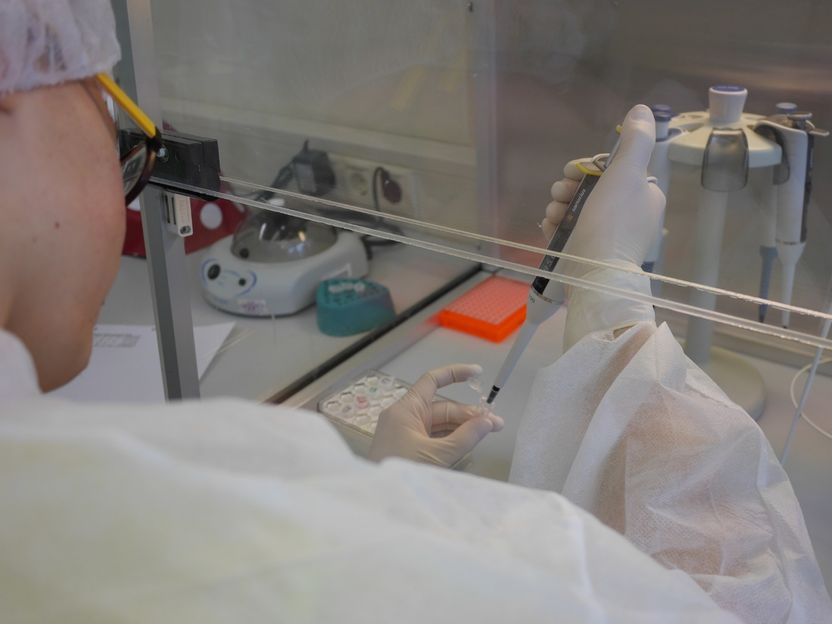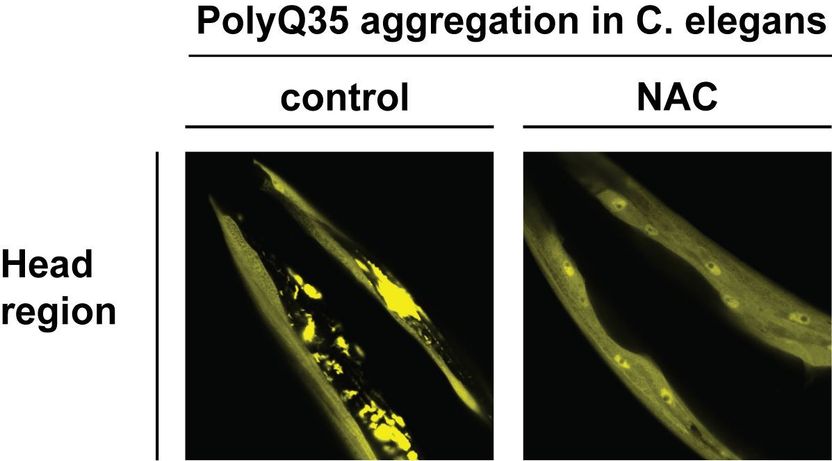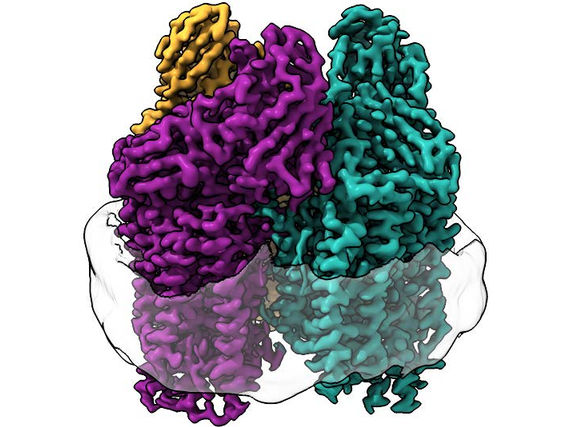University of Innsbruck develops novel corona test method
Michael Traugott and the spin-off company Sinsoma GmbH, together with the Departments of Zoology and Microbiology at the University of Innsbruck, are developing a new PCR system for the detection of the SARS-CoV-2 virus. This new PCR method works with different analytical materials that are easier to obtain and allow high-throughput testing. First tests were successful.

University of Innsbruck develops novel corona test method
Sinsoma GmbH
As requested by the Austrian Federal Government and the WHO, a significant increase in the capacity for coronavirus testing is essential to combat the new coronavirus. The University of Innsbruck is now responding to this by immediately developing and evaluating a new high-throughput method for the genetic analysis of patient samples at its Faculty of Biology.
At the Departments of Zoology and Microbiology at the University of Innsbruck, several successful feasibility tests for a high-throughput CE-PCR for the detection of the SARS-CoV-2 virus have been carried out in recent days in cooperation with Sinsoma GmbH, a spin-off company of the University of Innsbruck.
Finding the needle in the haystack
This approach uses the coupling of highly sensitive endpoint PCR and capillary electrophoresis (CE) in contrast to conventional real-time PCR protocols to detect genetic traces of the virus in samples. This is achieved by using specific, very short DNA sequences – so-called primers – which dock to the virus' RNA. This makes it possible to find the needle in the haystack. Just a few corona virus RNA molecules are enough to be discovered with the help of the procedure of the Innsbruck team. What is new about the Innsbruck approach is that it enables high-throughput CE-PCR analysis.
Not dependent on test kits used so far
"With this novel approach, we use different reagents than the conventional test methods," explains Michael Traugott, scientist at the University of Innsbruck and co-founder of Sinsoma GmbH. "As a result, we are not affected by material shortages, which are already occurring due to the great global demand for conventional tests."
The Innsbruck laboratory can carry out up to 1,000 tests per day if the evaluation by the authorities is successful and can then gradually expand this capacity. "With this, we want to offer an alternative method that ensures the detection of the SARS-CoV-2 virus in high throughput even if the supply situation becomes more difficult," says Rector Tilmann Märk. "With this new method, we at the University of Innsbruck want to make a contribution to effectively support the massive expansion of the test capacity for combating the coronavirus."
Novel application of an established analysis method
The spin-off company Sinsoma GmbH is a specialist in DNA/RNA trace analysis. Highly sensitive methods enable the company to identify and quantify individual species as well as entire species communities by detecting DNA and RNA from different sample types. The spectrum ranges from microorganisms and plants to fish and mammals. The University of Innsbruck is a shareholder of Sinsoma GmbH via the university holding company.
Other news from the department science
Most read news
More news from our other portals
Something is happening in the life science industry ...
This is what true pioneering spirit looks like: Plenty of innovative start-ups are bringing fresh ideas, lifeblood and entrepreneurial spirit to change tomorrow's world for the better. Immerse yourself in the world of these young companies and take the opportunity to get in touch with the founders.
See the theme worlds for related content
Topic World PCR
This groundbreaking and highly versatile molecular technique of PCR allows us to amplify tiny amounts of genetic material on a large scale and analyze them in detail. Whether in medical diagnostics, forensic DNA analysis or research into genetic diseases - PCR is an indispensable tool that gives us deep insights into the world of DNA. Immerse yourself in the fascinating world of the polymerase chain reaction (PCR)!

Topic World PCR
This groundbreaking and highly versatile molecular technique of PCR allows us to amplify tiny amounts of genetic material on a large scale and analyze them in detail. Whether in medical diagnostics, forensic DNA analysis or research into genetic diseases - PCR is an indispensable tool that gives us deep insights into the world of DNA. Immerse yourself in the fascinating world of the polymerase chain reaction (PCR)!























































